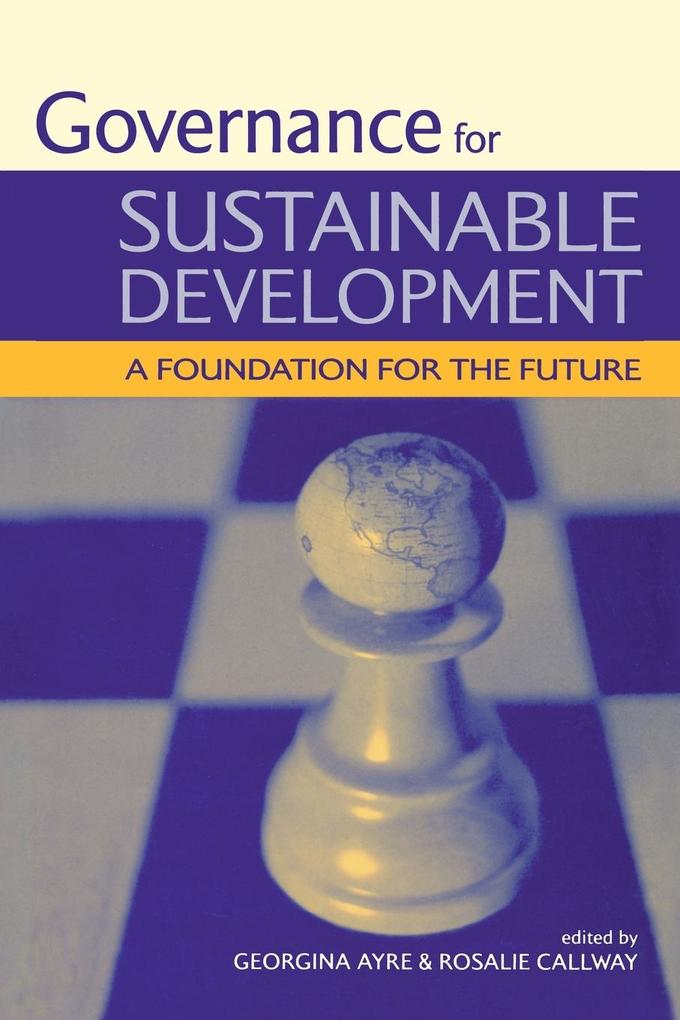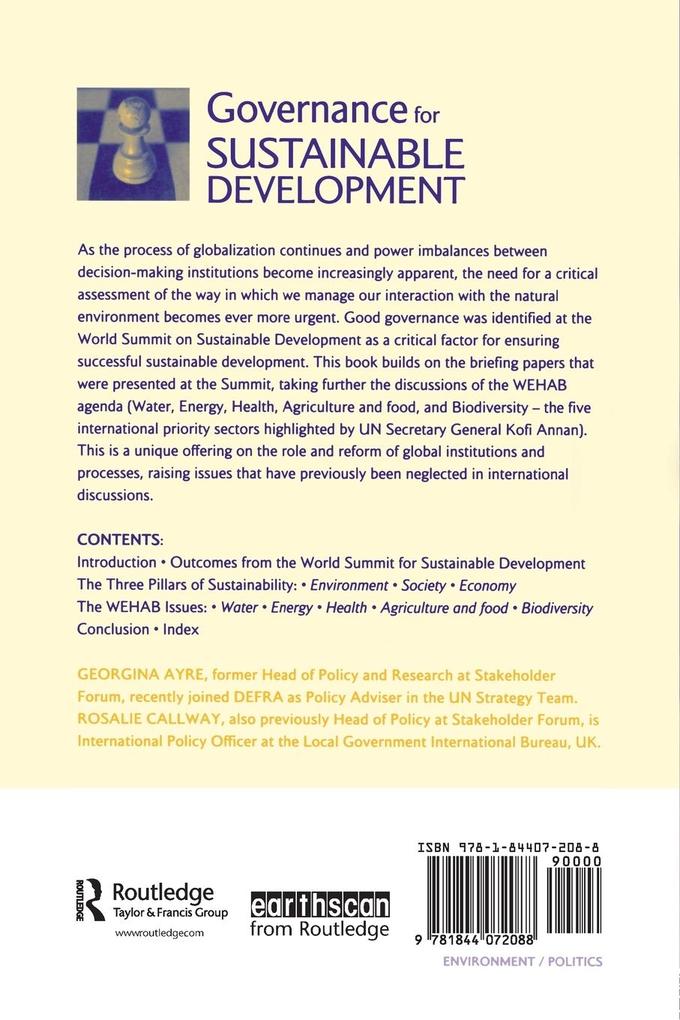
Zustellung: Mi, 09.07. - Sa, 12.07.
Versand in 5 Tagen
VersandkostenfreiBestellen & in Filiale abholen:
As the process of globalization continues and power imbalances between decision-making institutions become increasingly apparent, the need for a critical assessment of the way in which we manage our interaction with the natural environment becomes ever more urgent. Good governance was identified at the World Summit on Sustainable Development as a critical factor for ensuring successful sustainable development. This book builds on the briefing papers that were presented at the Summit, taking further the discussions of the WEHAB agenda (Water, Energy, Health, Agriculture and food, and Biodiversity - the five international priority sectors highlighted by UN Secretary General Kofi Annan). This is a unique offering on the role and reform of global institutions and processes, raising issues that have previously been neglected in international discussions.
Inhaltsverzeichnis
Introduction: Setting the Scene * Outcomes from the World Summit for Sustainable Development * Part 1: The Three Pillars of Sustainability * Environment: The Path of Global Environmental * Governance: Form and Function in Historical Perspective * Economy: The Economic Problem of Sustainable
Governance * Society: Participation and Engagement * Part II: The 'WEHAB' Issues * Water: Water and Governance * Energy: Energy Governance, Poverty and Sustainable Development * Health: Health and Sustainable Development - Addressing the Challenges Post-Johannesburg * Agriculture: Improving Governance for Food Security and Agriculture * Biodiversity: Biodiversity Governance after Johannesburg * Conclusion: Where Next?
Governance * Society: Participation and Engagement * Part II: The 'WEHAB' Issues * Water: Water and Governance * Energy: Energy Governance, Poverty and Sustainable Development * Health: Health and Sustainable Development - Addressing the Challenges Post-Johannesburg * Agriculture: Improving Governance for Food Security and Agriculture * Biodiversity: Biodiversity Governance after Johannesburg * Conclusion: Where Next?
Produktdetails
Erscheinungsdatum
01. Juni 2005
Sprache
englisch
Seitenanzahl
238
Autor/Autorin
Georgina Ayre, Rosalie Callway
Verlag/Hersteller
Produktart
kartoniert
Gewicht
368 g
Größe (L/B/H)
234/156/13 mm
ISBN
9781844072088
Entdecken Sie mehr
Bewertungen
0 Bewertungen
Es wurden noch keine Bewertungen abgegeben. Schreiben Sie die erste Bewertung zu "Governance for Sustainable Development" und helfen Sie damit anderen bei der Kaufentscheidung.










